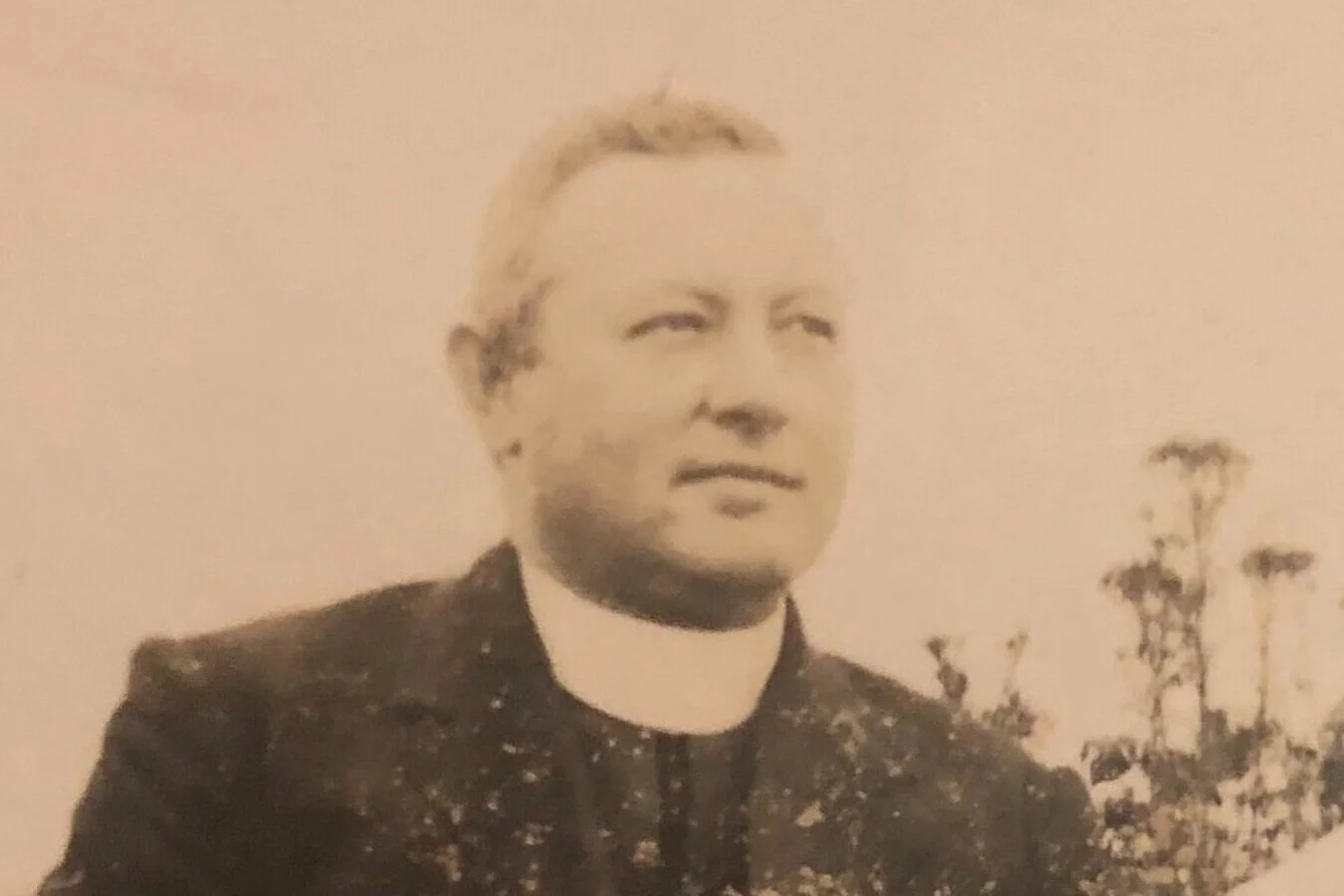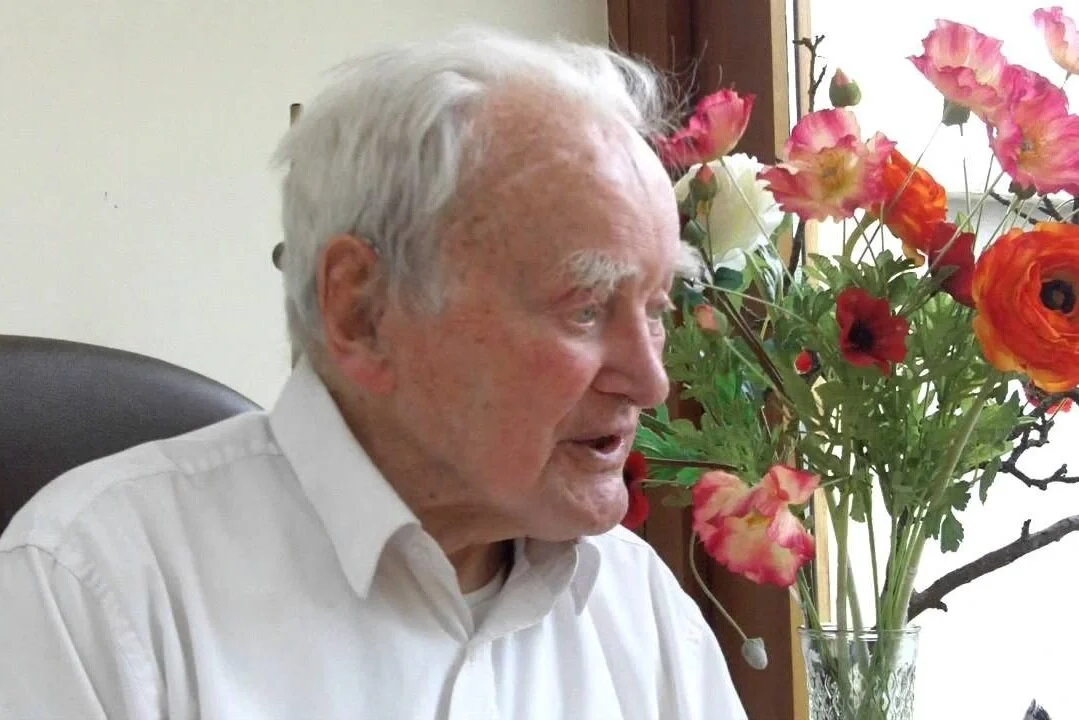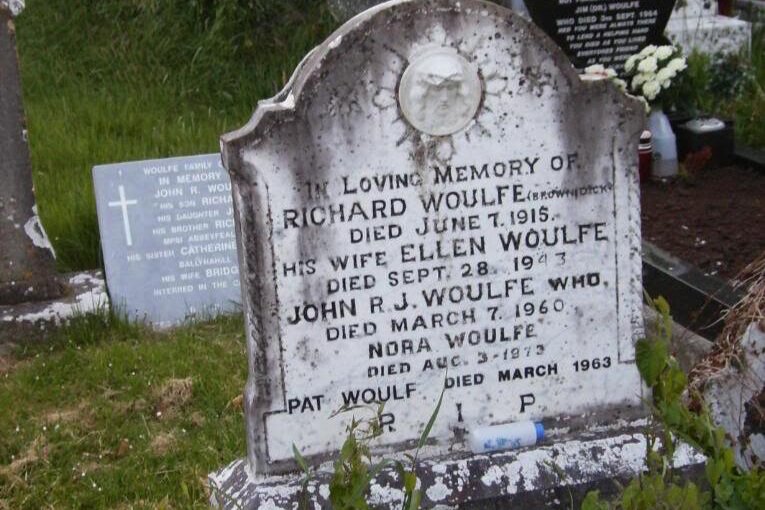
Obituaries
Fr. Patrick Woulfe
Interestingly, Fr. Woulfe’s obituary focuses more on his activities during the Anglo-Irish War than his book on Irish names for which he’s best known now, Here his republican politics take center stage, although the book itself was part and parcel of Fr. Woulfe’s cultural nationalism.
James B. Wolfe
James Wolfe, who came to Iowa from Co. Kerry as a boy, is remembered here as a pioneer on the prairie and someone who had lived through an age of transformative change. “He saw the railroad, the steam engine, and the automobile displace the rail and the ox drawn wagon …”
Sr. Íde Woulfe
Remembrances of Sr. Íde Woulfe are notable for how much they personalize her. She was a tomboy, a strict disciplinarian, a traditionalist, and very persistent when it came to seeking a missionary appointment. When she died she was ninety-nine, with almost seventy-nine as a nun.
Dicky Ned Woulfe
Dicky Ned Woulfe died in 1910 at the Glen, the family home in Cratloe built by his father, Old Ned. Dicky Ned is remembered as a larger-than-life personality who was writing family history on his deathbed. In fact, he was a well-known and respected source of history and lore.
Richard J. Wolfe
This 1927 obituary of Richard Wolfe—an immigrant farmer and horse-breeder in Streator, Illinois—provides an Irish newspaper with a welcome excuse to remember a legendary racehorse called Dimby. Dimby had been owned by a relative, Maurice Woulfe.
Richard B. Woulfe
Remembrances of Dick Woulfe, who died in 1937, emphasize his relation to Con Colbert, his time in the IRA during the Anglo-Irish War, and how that may have contributed to an early death. Nothing is mentioned of his Civil War service.
Tom Woulfe
An exact contemporary of his cousin Sr. Íde, Tom Woulfe gave his life not to God but to the GAA. His 2015 obituary explains that he was a founding member of the Civil Service club and instrumental in repealing the “ban,” which prohibited certain athletes from competing.
Maurice Wolfe
Maurice Wolfe is the rare creature who wrote his own obituary—and it’s remarkable. Published in 1917, it tells of cattle drives to Chicago and New Mexico, time spent with the Indians, and finally settling down in Kansas. The Irish immigrant tell his story plainly but with great poignance.
Joseph Collison
Judging by this 1928 obituary, Collison was a much-respected member of his community. The details of his life are fascinating: how he made it to Iowa and how he succeeded as a farmer. It also mentions how he and his wife took in the cattle-driver Maurice Wolfes’s daughter.
Seán de Bhulbh
Seán de Bhulbh’s published work on Irish surnames, which carried on a Woulfe family tradition, earned him this 2009 obituary in the Irish Times. It noted his facility with languages—Swahili!—and his interest in the outdoors.
Brown Dick Woulfe
Sadly, this 1915 obituary of Brown Dick Woulfe notes but does not explain his colorful nickname, which is also inscribed on his gravestone. The paper does note the largest funeral turnout in forty years.
Tom Wolfe
Tom Wolfe’s 2012 obituary is a poignant mix of his love of teaching and his political activism with a lonely childhood and divorce. Notable are excerpts from his own writing and an anecdote about teaching with hats.
Fr. Maurice Woulfe
This 1913 obituary describes a massive and ornate funeral for this West Limerick priest in rural Queensland, Australia. A former town mayor, he was well loved and the brother of three local nuns.
Old Phil Woulfe
Philip Woulfe is remembered in heroic terms: “At the patriarchal age of 91 he walked upright as at early manhood, and possessed his faculties fully to the end.” A short history of the family is also included in this 1901 obituary.
John W. Maher
This 1936 obituary describes an active and interesting life that started in Streator, Illinois, and ended at the Isthmus of Panama. In between, Maher was a lawyer, journalist, and businessman in North Dakota.














